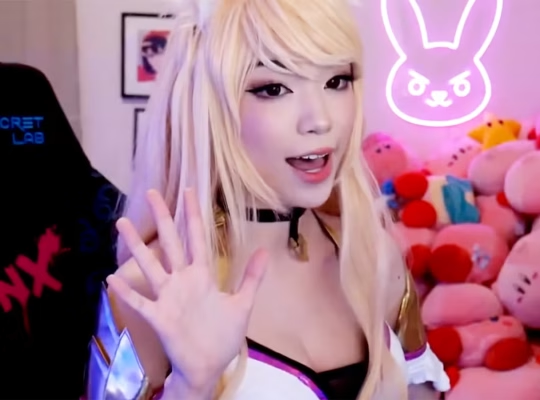Valve and Indie Developers Call Out Mastercard for Behind-the-Scenes Pressure on NSFW Games
In the past month, a storm of controversy has erupted across the gaming community after adult and NSFW games began disappearing from major digital storefronts—including Steam and itch.io. At the heart of the controversy? Mastercard, a global financial giant that, despite setting off the chain reaction, now claims it had nothing to do with it.
But evidence from Valve, developers, and payment processors paints a different picture—one that suggests Mastercard is playing a double game. While it denies targeting specific games or pressuring platforms, the truth is their ambiguous policy enforcement and “brand protection” rules forced platforms to preemptively censor content or risk losing access to essential payment processing services.
Rule 5.12.7: The Silent Trigger Behind the Purge
According to Valve’s internal communication, the crackdown began when payment processors stopped supporting certain transactions involving NSFW games. These processors specifically cited Mastercard’s Rule 5.12.7, which prohibits any content that could be considered damaging to the company’s brand or “patently offensive.” The rule is vague by design, leaving room for broad interpretation—and dangerous overreach.
Steam attempted to appeal, but every response pointed back to that single clause. Even though Mastercard never contacted Valve directly, their influence was clear. The acquiring banks passed Mastercard’s guidelines to payment processors, and the processors enforced it. At no point was the developer or platform given clarity or a path to comply—just a shutdown.
This isn’t regulation. It’s shadow censorship.
Mastercard’s Denials: A Carefully Worded Deflection
On August 1, 2025, Mastercard released a public statement saying they do not “evaluate or restrict specific game titles” and that they “support all lawful transactions.” They claimed they merely provide a framework and that enforcement decisions lie with merchants and banks.
The problem? Valve, the merchants, and the banks all say otherwise.
Steam developers were told explicitly that payment processors—acting under Mastercard’s rule—were no longer able to handle payments for certain games. Valve didn’t act randomly or voluntarily. They were reacting to risk, legal ambiguity, and the threat of financial lockout. That’s not choice. That’s coercion.
Who Pays the Price? Indie Creators and Marginalized Voices
The result of Mastercard’s soft power pressure is a purge of adult content—much of which comes from small studios, LGBTQ+ creators, and marginalized voices that already struggle for visibility. Some games weren’t even explicit by legal standards but were flagged anyway due to themes or presentation deemed “too risky.”
Developers reported being blindsided. Games that were previously approved, even praised, were suddenly delisted or payment-locked. It’s not just about adult content—it’s about the growing influence of corporate financial control over digital expression.
Not the First Time: Mastercard’s History of Silent Censorship
This isn’t new. Mastercard previously pressured Patreon to remove adult creators. They were behind payment restrictions on OnlyFans and Fanbox. The company often enforces cultural norms under the guise of brand protection, wielding their financial network like a moral police force—without accountability, transparency, or democratic oversight.
What’s different now is that they got caught—and the gaming community is pushing back.
The Fallout: Growing Backlash and Calls for Reform
A petition calling for Mastercard and Visa to stop interfering with legal adult content has surpassed 170,000 signatures. Developers and gamers alike are demanding clear rules, proper appeal systems, and the right to creative freedom without fear of silent censorship.
Even more alarming is the precedent this sets. If Mastercard can shut down access to payments through a loosely defined rule, what’s to stop them from targeting political games? Parodies? Controversial art?
Financial infrastructure should not be a tool for ideological enforcement.
Conclusion: Time for Mastercard to Own Up
Mastercard may hide behind sanitized PR statements, but their fingerprints are all over this situation. Whether or not they issued a direct takedown request, they set the stage for censorship through ambiguous, overly broad policies and brand-protection clauses that left platforms with no room to negotiate.
It’s time Mastercard stopped pretending they’re neutral. They’re not.
Their choices—and their silence—are shaping the future of what games we’re allowed to play.
And gamers are watching.












